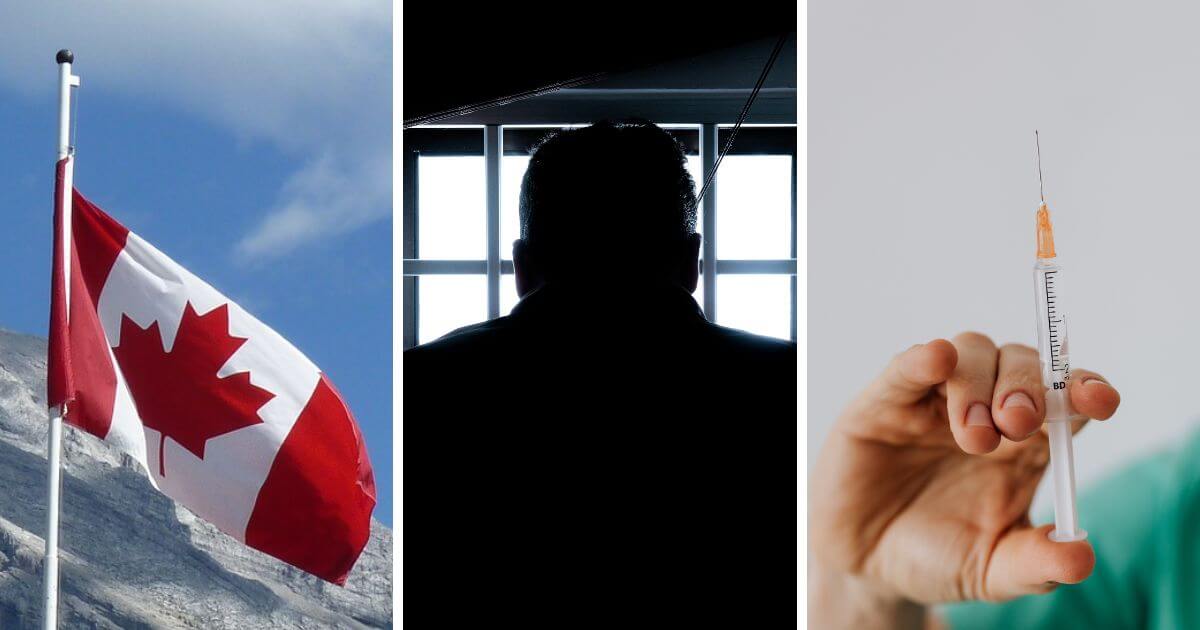In the past seven years, Canada has euthanised more prisoners than anywhere else that tracks and records such data, and evidence suggests that some are using it to escape their prison sentences.
Nine prisoners in Canada have been euthanised in the last seven years and critics are deeply concerned because of the lack of transparency and outside scrutiny.
Jessica Shaw, an academic at the University of Calgary, filed a freedom of information request about euthanasia in prisons in Canada and found that a third of all prisoner requests for euthanasia are approved. This is considerably lower than the approval rate of 81% in the general population but no explanation was provided.
A spokesperson for Correctional Services of Canada (CSC) told CTV News “For privacy reasons, we are currently unable to provide a further breakdown of these numbers”.
Shaw described the lack of details as “secretive in many ways”, adding that “[w]e worry about what’s happening, (and) what’s not happening, behind bars and behind closed doors”.
She told CTV News “It would appear to me that there’s a very different process when it comes to people who are dying through assisted death in prison than it is for… the general population of Canada.”
Ivan Zinger, the correctional investigator of Canada, also spoke with CTV News about the troubling lack of transparency. As part of his role, he is required to investigate all deaths in custody, except cases of assisted suicide and euthanasia.
“For some extraordinary reason, CSC was able to get an exemption [to] that requirement”, he said.
“We keep raising [the matter], but we don’t have data and they don’t have the obligation to provide us with data. And that’s the problem.”
Potential for coercion
Shaw has raised concerns regarding the presence of prison guards who may, even inadvertently, put pressure on prisoners.
“We really need to attend to whether or not someone can adequately consent when they’re being watched by a prison guard, for example… or whether anyone has free choice when so many of their rights have been taken away”, she said.
In her time interviewing prisoners, Shaw also found that, for some of them, euthanasia and assisted suicide are viewed as means to escape their prison sentence. One inmate, James (not his real name), told her “[W]hy not give us another option? Instead of having the taxpayers pay millions of dollars (for our prison time), why not just give us that option to go to [be euthanised]?”
A 2015 study from Belgium highlighted just this problem.
Researchers found 17 requests for euthanasia had been made by long-term prisoners who were “motivated by the constant and unbearable psychological suffering of detention.”
Both Zinger and Shaw have also raised concerns about the impact of making euthanasia available on the grounds of mental illness alone. Zinger says that the data indicates that as many as 75% of those in federal prisons have a mental health diagnosis and studies have indicated that prisons can make mental health worse.
“If the provisions are extended to include mental illness, there could be a lot more people that become eligible”, Zinger said.
Right To Life UK spokesperson Catherine Robinson said “The issues related to transparency are a concern and CSC should be open about the administration of euthanasia in Canadian prisons. More significantly though, discoveries about prisoners wanting to “escape” their sentences through death, as well as concerns about just how freely consent might be given for some prisoners, are entirely predictable outcomes of making euthanasia a right for prisoners.”












